
Users Track
Each topic will be between 3-4 hours with a break within each session. Each session will start with a theoretical part followed by a practical or hands-on session after the break.
| Time | Mon, 26.6. | Tue, 27.6. | Wed, 28.6. | Thu, 29.6. | Fri, 30.6. |
| 9:00-10:30 | Free
| U: Persistent Identifiers, which PID to use when? | Connecting data management services to HPC systems
| Enabling complex workflows for analysis | Community cases
|
| 10:30-10:45 | Break | Break | Break | Break | |
| 10:45-12:00 | Persistent Identifiers, which PID to use when? | Connecting data management services to HPC systems | Enabling complex workflows for analysis
| Closing - Certificates and send-off
| |
| 12:00-13:00 | Lunch | Lunch | Lunch | Lunch | Lunch |
| 13:30-14:00 | Opening | Departure
| |||
| 14:00-15:30 | Data management practices and plans | How to publish, preserve and cite your research | How to handle sensitive data | LUMI Supercomputer visit | |
| 15:30-16:00 | Break | Break | Break | ||
| 16:00-17:00 | Data management practices and plans | How to publish, preserve and cite your research | Trainers, Providers and Users Mixer | ||
| 19:00- | Reception dinner at Karolineburg | Steamboat cruise |
Providers Track
| Time | Mon, 26.6. | Tue, 27.6. | Wed, 28.6. | Thu, 29.6. | Fri, 30.6. |
| 9:00-10:30 | Free
| B2SHARE/ B2FIND | B2HANDLE, DOIs, B2INST | Sensitive data services | Operational tools |
| 10:30-10:45 | Break | Break | Break | Break | |
| 10:45-12:00 | B2SHARE/ B2FIND | B2HANDLE, DOIs, B2INST | Sensitive data services | Closing - Certificates and send-off | |
| 12:00-13:00 | Lunch | Lunch | Lunch | Lunch | Lunch |
| 13:30-14:00 | Opening | Departure
| |||
| 14:00-15:30 | B2ACCESS | B2DROP | B2SAFE | LUMI Supercomputer visit | |
| 15:30-16:00 | Break | Break | Break | ||
| 16:00-17:00 | B2ACCESS | B2DROP | Trainers, Providers and Users Mixer | ||
| 19:00- | Reception dinner at Karolineburg | Steamboat cruise |
Programme Apply now [CLOSED]
THE APPLICATION PROCESS FOR THE SUMMER SCHOOL 2023 HAS BEEN CLOSED.
Process
All interested students and participants are requested to fill the application form.
Each submission will be evaluated and the result will be communicated by the organising committee of the EUDAT Summer School in two-week batches.
Applications for (1) joining the EUDAT Summer School and (2) requesting financial support will be treated separately (i.e. entry to the Summer School does not automatically guarantee financial support).
Disbursement of accommodation and travel support will also be communicated to applicants. Applicants may be informed that they are put on a waiting list for receiving financial support, in which case, the result of their financial support request will be notified at a later date.
If you will not be requesting accommodation support or have not been successful in securing travel support, you are encouraged to make your own arrangements as soon as you have received confirmation.
Financial Support
Around 25 participants will be accepted. Financial support will be provided based on the merits of the applications. The specific costs will be covered by the EUDAT Summer School and financial support available includes the following:
- Full course fees: All the costs for the trainers and venue are covered by the EUDAT CDI.
- Partial board and lodging: To be provided to the majority of supported applicants for the User Track, upon request. Includes the following during the course of the stay (25-30 June):
- 5 nights/6 days stay
- Breakfasts
- Lunches
- Coffee breaks
- 1 social event with refreshments
- 1 reception dinner
- Free use of a sauna
- Travel: To be provided up to a maximum of €500 to the top scoring applicants, upon request. Includes international flights or trains to Kajaani.
- Social activity: A social activity will be made available to the participants, the cost of which will be covered by the EUDAT CDI.
Important Application Dates
- 15 May: Deadline for travel support requests
- 19 May: Evaluators deadline
- 22 May: Notification of financial support result and applications received to date
- 26 May: Final deadline for applicants (less chance for financial support)
- 29 May: Start of Notification of final batch of attendees
Criteria
To have the best chances of being accepted into the Summer School and for receiving financial support, please consider the following below.
User Track
Early-career and students applying to the EUDAT Summer School 2023 should satisfy the following criteria:
- Currently engaged in Bachelor, Masters, PhD or Postdoc studies;
- Fluent in English;
- Basic programming skills
- Basic knowledge of Python
- Disciplines (any computational scientific discipline is welcome)
- Basic Linux commands
- Personal Laptop
Applicants should also explain the relevance of their work in reference to the EUDAT activities, as expressed by the applicant in answer to the questions related to current and future benefits and follow-up activities. Applications will be evaluated by the EUDAT team according to the following criteria:
- Area of interest (as broad a coverage of data management as possible)
- The candidate background and experience - 30%
- Alignment of current research to EUDAT vision - 35%
- Impact of possible adoption of EUDAT services within research field - 30%
- Letter of Recommendation - 5%
- Geographical balance (to establish a good geographical representation in the selection)
- Gender balance (to establish a good gender balance in the selection)
Each criterion will be given a score between 1 and 5 and the score will then be weighted according to the above percentages. In cases where applicants have equal scores, gender and geographical balance will be taken into account.
Providers Track
This track is recommended for research or academic institution IT system administrators, community or data managers looking at providing research data services for their communities, in particular those that are interested in learning how to deploy EUDAT services.
As a minimum requirement, trainees accepted to the providers track is an ssh agent/client on their laptops.
Getting There
EUDAT Summer School Venue
Hotel Kajanus
Koskikatu 3, 87200
Kajaani, Finland
Getting in
The first step is to find flights to Helsinki. From Helsinki, there are two ways to get to Kajaani - another flight or via train.
Below are the recommended travel options for Kajaani allowing you to arrive in time for the opening on Monday:
Sun, 25 June
- Flight: Helsinki 16:25 -> Kajaani 17:45
- Train: Helsinki 8:15 -> Kajaani 14:28
Getting out
There is a recommended flight out of Kajaani to Helsinki on the last day of the Summer School which is expected to end just before lunch.
Fri, 30 June
- Flight: Kajaani 18:10 -> Helsinki 19:25
- Train: schedule not published yet, but there is generally a 7-hour train from 14:33 arriving in Helsinki at 21:45
EUDAT Summer School 2023 will be hosted between 26 and 30 of June 2023 in Kajaani, Finland. First deadline: 15 May, Final Deadline: 26 May.
This edition, organised in collaboration with the DICE project, aims to strengthen the skills required to excel in data management, getting the participants geared up to manage and process data throughout the full, research-data lifecycle (data discovery; data processing; data analysis; data preservation and publishing).
Experienced trainers will guide the students combining traditional theoretical lessons with hands-on sessions.
Interested applicants are encouraged to apply early as accommodation and travel support will be provided to a limited number of students and participants.
Two Tracks: Users and Providers
A new scope will be introduced in this edition of the EUDAT Summer School. For the first time, we are now offering a Providers Track for research or academic institution IT system administrators, community or data managers looking at providing research data services for their communities, in particular those that are interested in learning how to deploy EUDAT services.
The Users Track will continue providing early career or Bachelor, Masters, PhD or Postdoc programme students currently engaged in complex research environments with the latest best practices in research data management covering the complete research data lifecycle.
Please note that these are tentative schedules. While topics may be fixed, the titles may change closer to the date.
Main Benefits
Financial Support
- Courses are free
- Majority of accepted applicants will benefit from free partial board (breakfast, lunches and coffee breaks) and lodging (accommodation from 25-30 June 2023).
- Top applications will receive financial reimbursement towards travel costs (flights and/or train)
Certification & Opportunity for Extra Credits
- All students that complete the EUDAT Summer School will be provided a certificate of completion and recommendation letter for the awarding of extra ECTS credits towards their academic programme in their home institution
Unique experiences
- Experience the “midnight sun” - a natural phenomenon that occurs in the summer months where daylight exists even during midnight
- Cutting-edge topics amidst nature - Kajaani is a city immersed in nature with a river, lake and woods and more! See nature attractions.
- 26 hours a day - apparently, there are 26 hours in a day in Kajaani (according to the official city website)
- Explore Finnish culture through traditions such as the Finnish sauna and the unique cuisine.
- Martin Golasowski
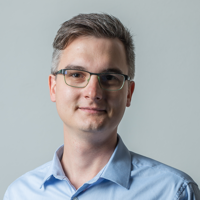 Senior Researcher, IT4Innovations National Supercomputing CenterHPC & Cloud researcher with background in networking, cloud and storage infrastructures, programming for both Cloud and HPC clusters and workflow orchestration. Lead developer of the LEXIS Platform, currently involved in Horizon Europe and EuroHPC projects EXA4MIND (WP leader) - https://exa4mind.eu, IO-SEA (task lead) - https://iosea-project.eu and OpenWebSearch.eu (task lead) - https://openwebsearch.eu
Senior Researcher, IT4Innovations National Supercomputing CenterHPC & Cloud researcher with background in networking, cloud and storage infrastructures, programming for both Cloud and HPC clusters and workflow orchestration. Lead developer of the LEXIS Platform, currently involved in Horizon Europe and EuroHPC projects EXA4MIND (WP leader) - https://exa4mind.eu, IO-SEA (task lead) - https://iosea-project.eu and OpenWebSearch.eu (task lead) - https://openwebsearch.eu - Jan Martinovič
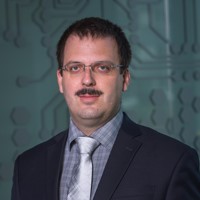 Head of Researcher Lab, IT4Innovations National Supercomputing CenterHead of the Advanced Data Analysis and Simulations Lab at IT4Innovations National Supercomputing Center. He has extensive experience in leading substantial R&D activities. His research activities are focused on HPC, Cloud and BigData convergence, HPC-as-a-Service, traffic management, and data analysis. He is the coordinator of the HORIZON-CL4-2022-DATA-01-05 project EXA4MIND (https://exa4mind.eu), and he has previous experience with the coordination of the ICT-11 project LEXIS (https://lexis-project.eu).
Head of Researcher Lab, IT4Innovations National Supercomputing CenterHead of the Advanced Data Analysis and Simulations Lab at IT4Innovations National Supercomputing Center. He has extensive experience in leading substantial R&D activities. His research activities are focused on HPC, Cloud and BigData convergence, HPC-as-a-Service, traffic management, and data analysis. He is the coordinator of the HORIZON-CL4-2022-DATA-01-05 project EXA4MIND (https://exa4mind.eu), and he has previous experience with the coordination of the ICT-11 project LEXIS (https://lexis-project.eu).- Sander Apweiler
- Sander Apweiler has a Masters Degree in Technomathematics from the University of Applied Sciences Aachen. He has worked at Jülich Supercomputing Centre (JSC) of Forschungszentrum Jülich since 2014 and is active in EUDAT. Sander has different roles with the B2ACCESS (user authentication and authorisation) and B2DROP services, and a valuable knowledge of the EUDAT service suite. Besides EUDAT, Sander is working in the area of AAI in other projects and is participating in the EOSC AAI taskforce.
- Marjan Grootveld
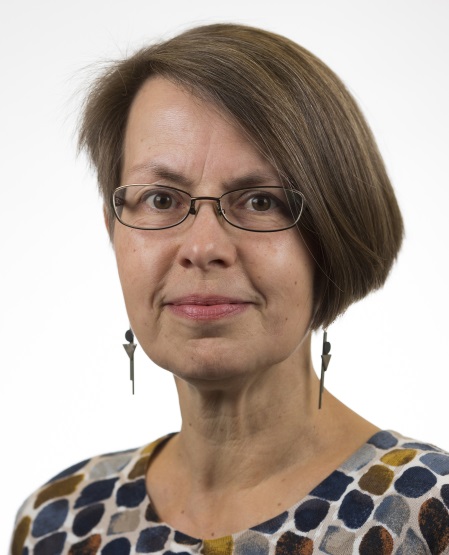 Marjan Grootveld leads the Research Data Expert team at Data Archiving and Networked Services (DANS, https://dans.knaw.nl/en/). DANS is the Dutch national centre of expertise and repository for research data. Marjan is involved in the EC-funded FAIR-IMPACT (https://fair-impact.eu/) and DICE (https://www.dice-eosc.eu/) projects. She is a member of the EOSC Association taskforce on FAIR metrics and data quality (https://eosc.eu/eosc-task-forces) and the steering group of RDNL, which provides the well-known training “Essentials 4 Data Support” (https://datasupport.researchdata.nl/en/). She also engages as reviewer for the repository organisation CoreTrustSeal (https://www.coretrustseal.org/). “FAIR data live in trustworthy repositories.”
Marjan Grootveld leads the Research Data Expert team at Data Archiving and Networked Services (DANS, https://dans.knaw.nl/en/). DANS is the Dutch national centre of expertise and repository for research data. Marjan is involved in the EC-funded FAIR-IMPACT (https://fair-impact.eu/) and DICE (https://www.dice-eosc.eu/) projects. She is a member of the EOSC Association taskforce on FAIR metrics and data quality (https://eosc.eu/eosc-task-forces) and the steering group of RDNL, which provides the well-known training “Essentials 4 Data Support” (https://datasupport.researchdata.nl/en/). She also engages as reviewer for the repository organisation CoreTrustSeal (https://www.coretrustseal.org/). “FAIR data live in trustworthy repositories.”- Chris Ariyo
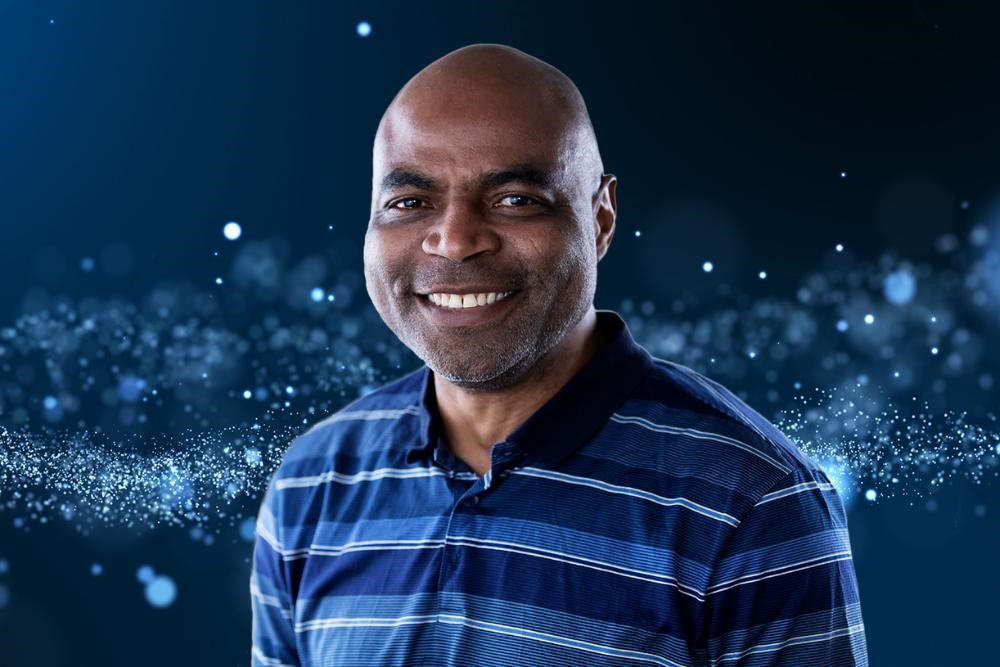 Chris Ariyo is currently working at the CSC - IT Center for Science Ltd (CSC).He has been working in CSC for more than 20 years in different capacities as a specialist in HPC, Storage, Backup and Archiving as well as data management.Has been involved with the EUDAT right from its inception and currently the service owner for the EUDAT CDI B2SHARE service.
Chris Ariyo is currently working at the CSC - IT Center for Science Ltd (CSC).He has been working in CSC for more than 20 years in different capacities as a specialist in HPC, Storage, Backup and Archiving as well as data management.Has been involved with the EUDAT right from its inception and currently the service owner for the EUDAT CDI B2SHARE service.- Johannes Lares
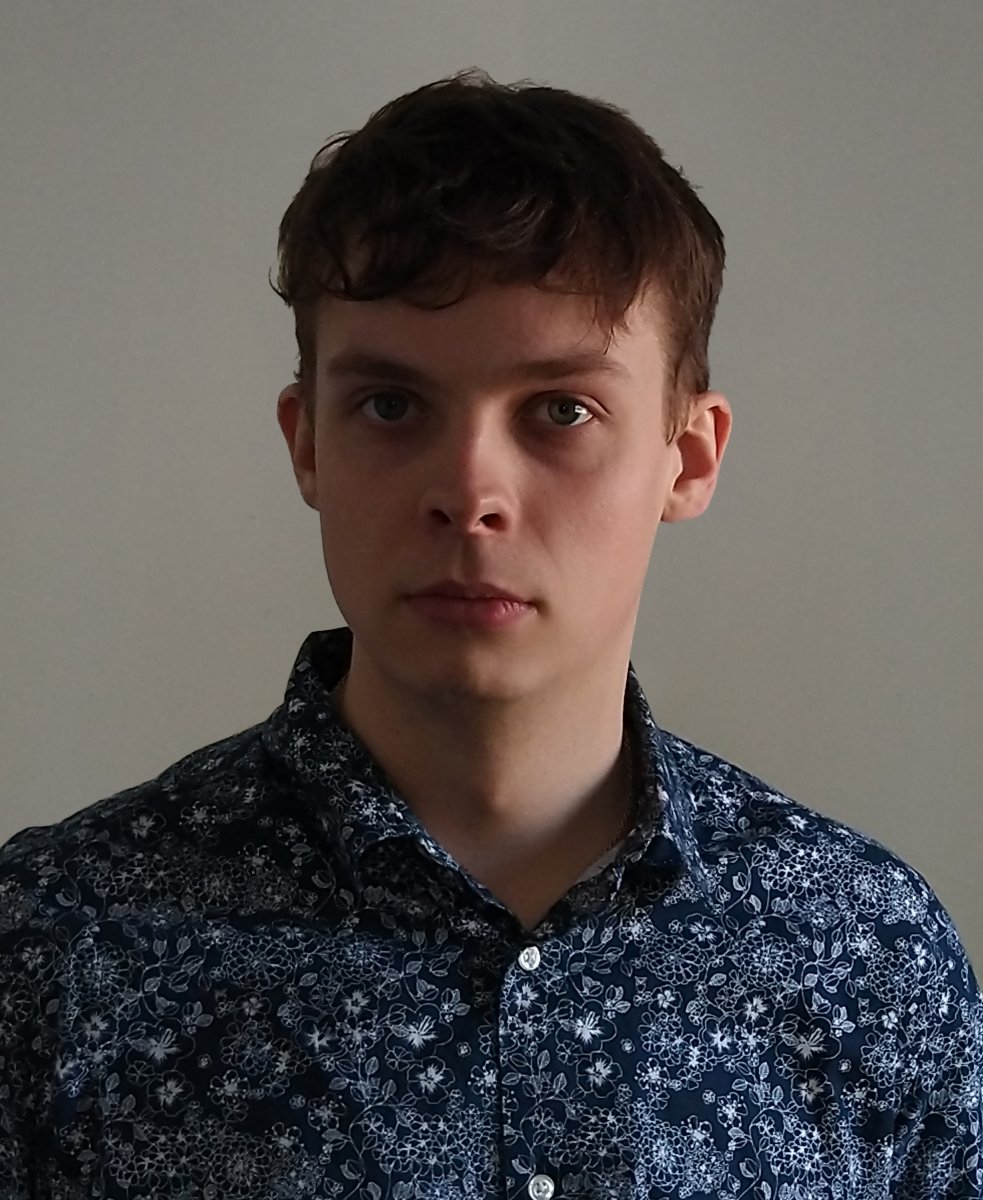 Johannes is a Junior Software Specialist at CSC - IT center for science ltd. in Finland. He is also a computer science masters student at the University of Helsinki. He has been working with EUDAT B2SHARE for 2 years and his main responsibilities are metadata schemas, metadata serializers and different software development tasks. He is experienced in publishing research data and in open science.
Johannes is a Junior Software Specialist at CSC - IT center for science ltd. in Finland. He is also a computer science masters student at the University of Helsinki. He has been working with EUDAT B2SHARE for 2 years and his main responsibilities are metadata schemas, metadata serializers and different software development tasks. He is experienced in publishing research data and in open science.- Sven Bingert
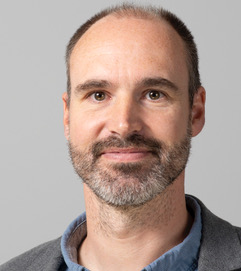 Sven holds a PhD in astrophysics from the University of Freiburg, Germany, and joined the Gesellschaft für wissenschaftliche Datenverarbeitung mbH Göttingen (GWDG) in 2014. He is project manager for diverse national and international projects with a strong focus on research data management and especially persistent identifiers. Supporting scientists with software and automated workflows is one of the main objectives of his research. Being a member of ePIC he has strong expertise in all PID related services, e.g., B2Handle or B2Inst and is engaged in developments of the FDO community. Also in the currently running project FAIRCORE4EOSC, he is component lead of the Data Type Registry and the PID Meta Resolve, both relevant to improve the (re-)use of scientific data. Sven teaches at the University of Göttingen with a lecture on IT for international law students and a lecture on data management for data science.
Sven holds a PhD in astrophysics from the University of Freiburg, Germany, and joined the Gesellschaft für wissenschaftliche Datenverarbeitung mbH Göttingen (GWDG) in 2014. He is project manager for diverse national and international projects with a strong focus on research data management and especially persistent identifiers. Supporting scientists with software and automated workflows is one of the main objectives of his research. Being a member of ePIC he has strong expertise in all PID related services, e.g., B2Handle or B2Inst and is engaged in developments of the FDO community. Also in the currently running project FAIRCORE4EOSC, he is component lead of the Data Type Registry and the PID Meta Resolve, both relevant to improve the (re-)use of scientific data. Sven teaches at the University of Göttingen with a lecture on IT for international law students and a lecture on data management for data science.- Narges Zarrabi
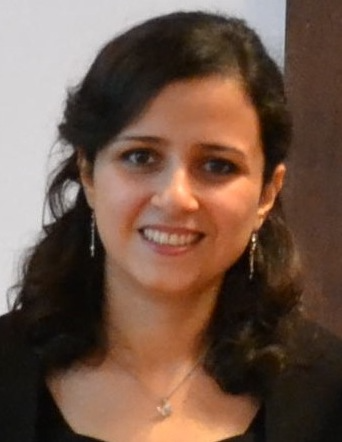 Dr Narges Zarrabi is a consultant of Research Data Management and product manager of Research Drive service at SURF. She holds a PhD in Computational Science from University of Amsterdam on the topic of modelling and simulation using agent-based models and complex networks. As a consultant, Narges helps research communities to adopt IT solutions for data management and FAIR using national services of SURF and also services developed under the European Open Science Cloud and DICE project.
Dr Narges Zarrabi is a consultant of Research Data Management and product manager of Research Drive service at SURF. She holds a PhD in Computational Science from University of Amsterdam on the topic of modelling and simulation using agent-based models and complex networks. As a consultant, Narges helps research communities to adopt IT solutions for data management and FAIR using national services of SURF and also services developed under the European Open Science Cloud and DICE project.- Tibor Kálmán
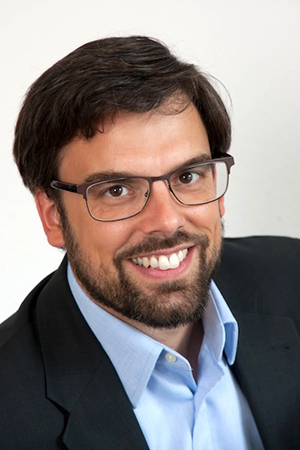 Dr. Tibor Kálmán is an IT professional at GWDG, Germany. Tibor joined GWDG in 2005 and contributed to several international infrastructure and data management projects with the aim to build up research environments for various disciplines.Tibor holds a PhD in Computer Science from the University of Göttingen. His teaching activities included amongst others the theory and practice of distributed systems, parallel computing, and data management. His current research focuses on (1) distributed computing paradigms, (2) automated system deployment, and (3) research data management, including persistent identifiers.Tibor is Chair of the Management Board of ePIC (‘PID Consortium for eResearch’), Co-Chair of the ‘PID Policy and Implementation’ Task Force of EOSC, as well as Vice-Chair of the Joint Research Committee of DARIAH-ERIC.He also has 20+ years experience as an independent IT consultant specialising in small and medium-sized enterprises.
Dr. Tibor Kálmán is an IT professional at GWDG, Germany. Tibor joined GWDG in 2005 and contributed to several international infrastructure and data management projects with the aim to build up research environments for various disciplines.Tibor holds a PhD in Computer Science from the University of Göttingen. His teaching activities included amongst others the theory and practice of distributed systems, parallel computing, and data management. His current research focuses on (1) distributed computing paradigms, (2) automated system deployment, and (3) research data management, including persistent identifiers.Tibor is Chair of the Management Board of ePIC (‘PID Consortium for eResearch’), Co-Chair of the ‘PID Policy and Implementation’ Task Force of EOSC, as well as Vice-Chair of the Joint Research Committee of DARIAH-ERIC.He also has 20+ years experience as an independent IT consultant specialising in small and medium-sized enterprises.- Harri Hirvonsalo
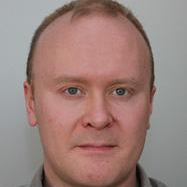 Harri Hirvonsalo is a software professional with +5 years of work experience in research and industry setting with a current position as software specialist at CSC - IT Services for Science Ltd, a member organisation of EUDAT Collaborative Data Infrastructure. At CSC, Harri works as a EUDAT B2SHARE developer. Fields of his interest include software architectures, open data, internet of things, information security, systems engineering, and software development in general.
Harri Hirvonsalo is a software professional with +5 years of work experience in research and industry setting with a current position as software specialist at CSC - IT Services for Science Ltd, a member organisation of EUDAT Collaborative Data Infrastructure. At CSC, Harri works as a EUDAT B2SHARE developer. Fields of his interest include software architectures, open data, internet of things, information security, systems engineering, and software development in general.- Claudia Martens
- Claudia Martens (F) is working at the German Climate Computing Center (DKRZ) as service owner of EUDAT´s central discovery service B2FIND. With a background in Social Sciences and Library and Information Sciences she has 6+ years experience of working in European Infrastructure Projects, focusing on interdisciplinary aspects of research data discoverability, in particular interoperability issues of metadata standards and -schemes.
- Marvin Winkens
- [[{"fid":"83223","view_mode":"default","fields":{"format":"default","alignment":"","field_file_image_alt_text[und][0][value]":false,"field_file_image_title_text[und][0][value]":false},"type":"media","field_deltas":{"1":{"format":"default","alignment":"","field_file_image_alt_text[und][0][value]":false,"field_file_image_title_text[und][0][value]":false}},"attributes":{"style":"height: 187px; width: 134px;","class":"media-element file-default","data-delta":"1"}}]]Marvin Winkens has a master degree in Applied Computer Science from the Fachhochschule Aachen and specialization in Natural Language Processing. Since 2022, he has been a valuable member of the renowned Jülich Super Computing Center, actively contributing to EUDAT. In his current role, he is responsible for maintaining B2DROP, a crucial component of EUDAT. Despite his background diverging from his current occupation, his comprehensive knowledge of computer science and expertise in natural language processing provides a unique perspective. In 2020, he successfully completed his master's thesis, delving into the captivating world of natural language processing. Passionate about empowering individuals through technology, Marvin combines his technical proficiency, training aptitude, and enthusiasm to help others harness the potential of digital solutions. Together, he aims to explore new frontiers and unlock the endless possibilities offered by the realm of computing.
- Anna-Lena Flügel
- [[{"fid":"83225","view_mode":"default","fields":{"format":"default","alignment":"","field_file_image_alt_text[und][0][value]":"Picture of Anna-Lena.","field_file_image_title_text[und][0][value]":false},"type":"media","field_deltas":{"2":{"format":"default","alignment":"","field_file_image_alt_text[und][0][value]":"Picture of Anna-Lena.","field_file_image_title_text[und][0][value]":false}},"attributes":{"alt":"Picture of Anna-Lena.","style":"font-size: 13.008px; height: 185px; width: 250px;","class":"media-element file-default","data-delta":"2"}}]]Anna-Lena Flügel is a metadata manager for EUDAT's interdisciplinary discovery portal for research data, B2FIND. She has a background in English Literature and Library Studies and joined the German Climate Computing Centre (DKRZ) in 2019. Since then, she has been maintaining and developing a user-friendly discovery portal, thus dealing with metadata interoperability issues on a daily basis. In a European context, her work focuses primarily on supporting research communities within several European projects to make their data findable while promoting the FAIR data principles. In addition, she organizes trainings to facilitate Open Science and compliance with e.g. EOSC requirements.
- Claudio Cacciari
- [[{"fid":"83226","view_mode":"default","fields":{"format":"default","alignment":"","field_file_image_alt_text[und][0][value]":"Picture of Claudio Cacciari.","field_file_image_title_text[und][0][value]":false},"type":"media","field_deltas":{"3":{"format":"default","alignment":"","field_file_image_alt_text[und][0][value]":"Picture of Claudio Cacciari.","field_file_image_title_text[und][0][value]":false}},"attributes":{"alt":"Picture of Claudio Cacciari.","style":"font-size: 13.008px; height: 150px; width: 150px;","class":"media-element file-default","data-delta":"3"}}]]Claudio Cacciari is an advisor in the Data Management Service team at SURF (surf.nl). He support researchers in using data management tools and services, applying the best RDM practices and is involved in national and EU projects. In particular, he's been involved in project related to the iRODS software since 2012 and is the software architect and the administrator of similar services offered by his institute.
- Abdulrahman Azab
- Abdulrahman is a Chief Engineer with Research Computing Services at the University of Oslo and is a Senior Advisor on the NeIC Executive Team. He has been a project manager for several projects with NeIC, and recently led the PaRI project which enabled researchers to conduct parallel analyses on public COVID-19 data and track virus spread in near-real time. Abdulrahman is currently a technical coordinator with NeIC’s Sensitive Data Forum and Expert Network for Nordic and EU Collaboration, community coordinator for NeIC’s FAIR Data Forum, and is a steering board chair as well as activity lead in NeIC’s Nordic WLCG tier-1 facility. He teaches graduate-level HPC Bioinformatics courses at the University of Oslo and conducts research in HPC, High Throughput Computing, High Availability Computing, Cloud Computing, Machine/Deep Learning, Cybersecurity, and Bioinformatics.
- Themis Zamani
- [[{"fid":"83227","view_mode":"default","fields":{"format":"default","alignment":"","field_file_image_alt_text[und][0][value]":"Picture of Themis.","field_file_image_title_text[und][0][value]":false},"type":"media","field_deltas":{"4":{"format":"default","alignment":"","field_file_image_alt_text[und][0][value]":"Picture of Themis.","field_file_image_title_text[und][0][value]":false}},"attributes":{"alt":"Picture of Themis.","style":"font-size: 13.008px; height: 140px; width: 200px;","class":"media-element file-default","data-delta":"4"}}]]Themis Zamani holds a Bachelor in Computer Science and an MSc in Computer Science - Information Systems - from the University of Crete. Since 2013 she works for GRNET, the Greek national cloud, network and HPC provider where she has participated in a wide range of European projects, undertaking both technical and management responsibilities including Software Engineer and Senior Project Manager for e-Infrastructures. Today she holds the position of Head of Unit for Implementation in the European Infrastructures and Projects Directorate and is a member of the EUDAT Board. Themis has in-depth experience in a wide range of technologies, including stream processing platforms, big data analytics, data management, cloud computing. Her areas of interest also include Persistent identifiers and Federated Service Management. For this purpose she is actively participating in the related Task forces and international fora whilst at the same time she serves as the Service Owner of GRNET PID service and EUDAT B2HANDLE Service.
- Jorik van Kemenade
- Jorik van Kemenade works as an advisor at SURF. In this role, he supports researchers to manage, preserve, and share their data. He is also involved in several (inter)national projects, including EOSC Future and ODISSEI, that focus on creating and developing RDM tools and infrastructure.
- Laura Hofer
- Laura Hofer finished her Master's degree in Applied Mathematics and Computer Science with a specialization in data science in 2021 at FH Aachen. During this time, she worked as a student assistant at the renowned Juelich Supercomputing Center (JSC) within the Forschungszentrum Jülich. Laura currently serves as a Scientific Employee at the Jülich Supercomputing Center. In her role, she actively contributes to various Authentication and Authorisation Infrastructures, including B2ACCESS, Helmholtz AAI, and Furms.
